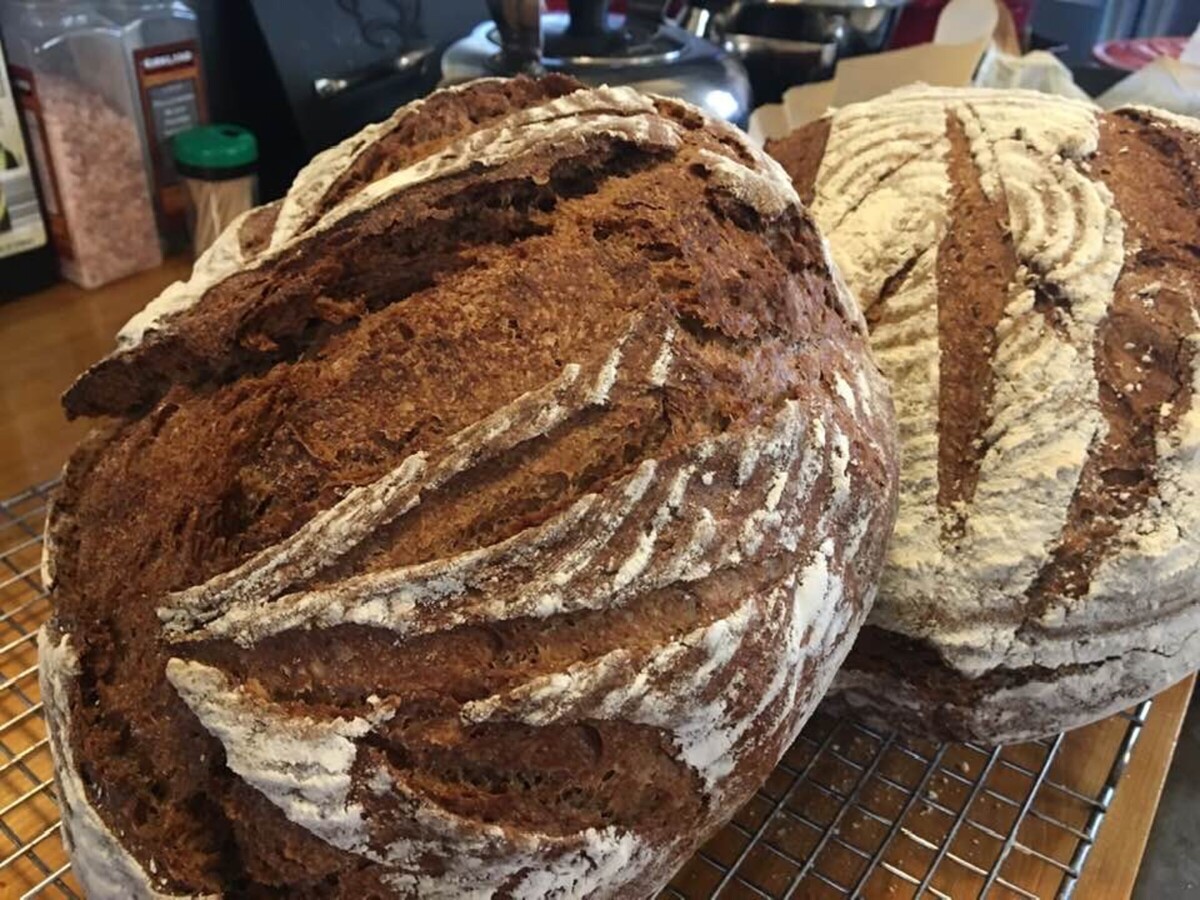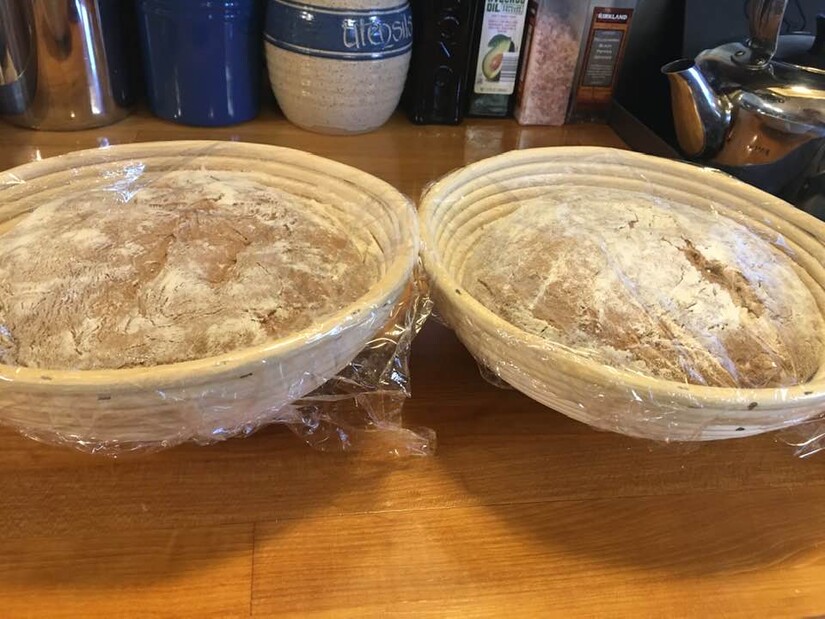Image


A dense rye bread, Pumpernickel originated in the Westphalian region of Germany, perhaps during the time of the Thirty Years War (1618-1648). The brutal, terribly destructive conflict included several European countries fighting for religious, territorial, and commercial reasons. The bread was originally made entirely of coarse winter rye flour (and whatever else seemed to be lurking on the threshing floor) for the German soldiers. This particular grain grew well throughout the cold Westphalian region even in the winter, and so it provisioned soldiers and civilians throughout the years of bitter fighting.
As to the name “pumpernickel": we know that the German language contains many compound words. For example, the word for glove is “Handschuh” or “hand shoe.” So how did the name “pumpernickel” come about?
One of the unfortunate consequences for humans after they’d consumed this particular bread was an enormous surfeit of gas. The common word for that issue was “pumpser” and referring to the rascally soldier boys we have the word “nickel.” And so the name “pumpernickel” actually means “farting boys."
 Pumpernickel dough on the rise in bannetons.
Pumpernickel dough on the rise in bannetons.Here is a case when “out with the old and in with the new” is a highly prized mantra! These loaves don’t produce any unfortunate digestive issues, as they once did due to the recipes of the distant past. They are made with a starter and biga, in addition to finely milled rye and wheat grains. Honey, dark cocoa powder, and slow overnight rise add to the complex flavor notes.
My mother would recall, as a young girl, spending a few precious summer weeks in the countryside of Alsace with her Tante Sophie. She would take the playful goats out to graze the fields early in the morning, but not before her aunt handed her a thick slab of this dark bread spread with creamy goat cheese and plum confiture to munch on.
I hope that you indulge in a hearty chuckle whenever you enjoy a slice of pumpernickel with your favorite wurstchen, dear friends!
High in the mountains above Bally, where the dense groves of treetops seem to touch the sky, is Francine Black, Boyertown’s own version of chef Julia Child. Her daily activities reflect the things she most values: family and friends, music, and lovingly prepared food. To comment on Francine's column, log into The Expression and click the comment bubble below.